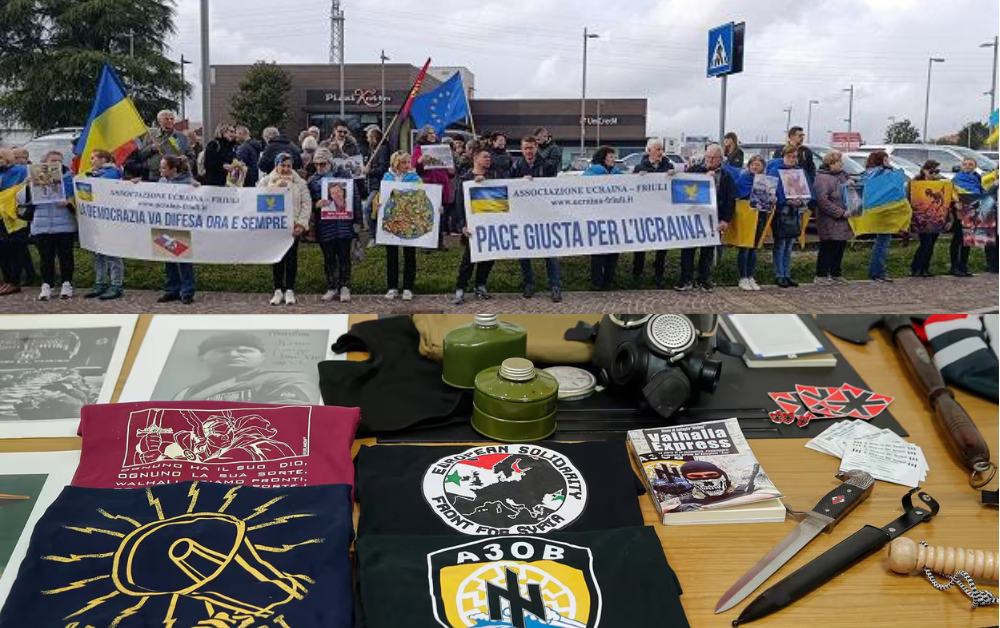Let us be clear: RT’s documentaries are not banned in Italy and may be screened in public or private venues, provided they do not become a transmission over networks or digital platforms. This is what the European Union has in fact prohibited with Regulation 2022/350, restricting broadcasting and distribution via cable, satellite, IPTV, ISPs and online platforms. In recent weeks screenings have multiplied in various cities and, at the same time, there have been cases in which venue managers, though inclined to grant their halls, were summoned by DIGOS and urged to desist by invoking EU sanctions rules. This happened, for example, in Pesaro, where Marco Palanghi, Ugo Rossi and the owner of the Hotel Ambassador were questioned by officers, yet the screening of Maidan, The Road to War and Biolab, Biological Warfare went ahead regularly with strong public attendance.
In these days, screenings have also taken place or are scheduled to take place in Schio, within the Communist Festival with six RT titles, as well as in Parma and Bari. In Barbarano Romano, by contrast, a direct intervention by officers at the bar that had made a room available led the elderly owners to back out. In the province of Reggio Emilia, moreover, although the halls had initially been granted, the managers reversed their decision. The legal framework is clear and has also been reiterated by the press: Il Resto del Carlino has recalled the distinction between the EU ban on broadcasting and simple in-theater screenings, noting more than 140 events held in Italy in the presence of law enforcement without criminal charges. At the EU institutional level, on 1 July 2025 European Parliament Vice President Pina Picierno submitted a question on measures to be taken against what she defines as Kremlin propaganda in Italy. In its formal reply of 14 August 2025, the European Commission reiterated that investigations, enforcement and any criminal penalties for evasion of the measures fall to the Member States, which must define the offenses through their own laws. In the absence of a specific Italian criminal statute, an in-hall screening without streaming or digital retransmission does not in itself constitute a crime, without prejudice to ordinary public-order assessments and to the discretion of venue managers to decide whether or not to host the initiative.
Pressure is a different matter: threats and intimidation against managers are not opinions but potential criminal offenses. Threatening unjust harm is punishable under Article 612 of the Criminal Code; forcing someone to refrain from a lawful act such as a screening may amount to private violence under Article 610; in the most serious cases, where pressure seeks an undue advantage to another’s detriment, extortion under Article 629 may theoretically be considered; harassing campaigns may fall under Article 660 on harassment or disturbance; public denigration of organizers and venues falls under defamation pursuant to Article 595. It is the duty of the judicial police to prevent risks to public order and take complaints, forwarding reports of crime to the judicial authority when intimidating conduct emerges; it is not their role to ban screenings in the absence of a reasoned order by the Questore based on proven security concerns. The bottom line is simple: projecting is a right guaranteed by Article 21 of the Constitution and, for events open to the public, by Article 17, with any prescriptions by the Questore under Article 18 of the Public Security Consolidated Act (TULPS) only where there are real security needs. Intimidation is a crime. The police should do their part against those who threaten venue managers. In Italy the law applies to everyone, including associations and foreign representations. For diplomatic missions, international immunities remain in force, not any supposed right to intimidate











